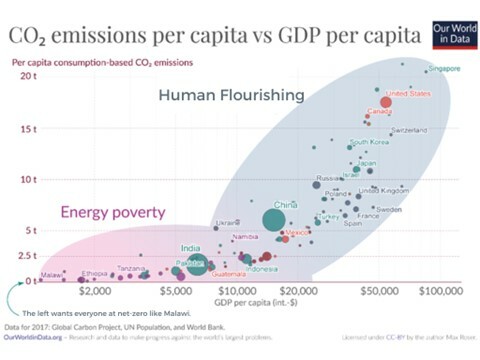Last week, President Joe Biden announced that climate change is a “code red for humanity,” which will likely exacerbate a very current phenomenon spreading among young people ages 16-25: eco-anxiety. Like some fads, eco-anxiety is trendy, contagious and, in some heartbreaking cases, deadly serious.
On this year’s Earth Day, a man named Wynn Bruce set himself on fire because of his despair about climate change. In April 2018, David Buckel performed a similar act by dousing himself in gasoline, saying in an email beforehand, “My early death by fossil fuel reflects what we are doing to ourselves.”
In July 2020, a young woman, Linda Zhang, took her own life because of climate despair. Linda wrote to the New York Times that she no longer wanted to be “reciting poetry even as the world is burning.” At the French Open tennis tournament last month, another young woman tied herself to the net by the neck, protesting climate change by wearing a shirt stating, “We only have 1028 days left.”
These may seem like extreme acts and demonstrations, but in Canada, ER Dr. Lori Adamson reported that kids are coming in due to attempted suicide from the fear of climate change. Additionally, she reported that at least three young patients attempted a drug overdose because of climate distress. Altogether, 75% of young people fear that “the future is frightening” because of climate change.
How do people become so anxious about the climate? First, they learn to be anxious at school. The EPA has provided climate change resources for educators to use in classrooms that foment an exaggerated sense of urgency, which teachers reinforce. A report shows that 86% of teachers believe climate change should be taught, and “37 states recognize human-caused climate change in their science standards” for school.
When young people are not learning at school, they are on their phones, inundated with messages about Earth’s impending doom on social media. TikTok, for example, has become the “fastest-growing network” for young people’s news sources. TikTok videos with the hashtags #Eco-Anxiety and #Climate-Anxiety—often used interchangeably—have 6.2 million views and 7.3 million views, respectively. In Europe, 1,577 young people made suicidal comments on a video with an active countdown saying, “Time left till no more fish in the sea.” Again, this is not a one-off scenario, as TikTok houses other videos counting down how long we have until we run out of food, water, etc.
But young people rarely get a chance to see the full picture. Julius Caesar and George Washington, separated by 2,000 years, used the same mode transportation to ride into battle. But in 223 years since Washington died, we have seen an exponential increase in technology and innovation, and now keep our land, skies, and seas safe with unmanned drones, GPS systems mapping the world, and other unthinkably sophisticated technology. All of that progress and unmatched prosperity has been made in large part to the development of our natural resources like oil and gas.
Instead of using fear over the most extreme weather scenarios, our media, leaders, parents, and teachers should communicate to our young people the complete story of fossil fuels and the benefits of affordable and reliable energy.
America has cut harmful air pollution by 78% in the last five decades because of our innovative and efficient use of energy resources—not in spite of it. As a result, we are world leaders for clean air, and we are No. 1 for access to clean and safe drinking water. Far from being anxious and stressed, young people should be proud of this country’s achievements and be inspired to build upon those successes.
Energy is the key to human flourishing. Young people can find hope in our efforts to protect our environment, improve our air quality, and increase human flourishing through affordable and reliable energy. When countries get access to energy, families come out of poverty, girls go to school, and women across the world save countless hours in household chores and the collection of water.
Ultimately, Americans need to understand the truth because it’s the way to not only protect our next generation but also provide the key to eradicating poverty here and around the world.
